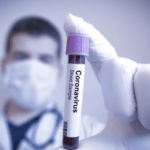As part of the European Roadmap towards lifting coronavirus containment measures, the Commission is presenting guidelines on coronavirus testing methodologies.
Objective
The guidance aims to support Member States in effectively using testing tools in the context of their national strategies and during the different stages of the pandemic, including when phasing out confinement measures. The Commission also aims to ensure that high-quality tools are available to assess the performance of the tests.
The availability of reliable data over time is key to lifting containment measures. In order to achieve this, there needs to be sufficient monitoring of the progression of the coronavirus pandemic, including through large-scale testing.
Commission’s guidelines
In its guidelines, the Commission calls on manufacturers to produce “state of the art” testing kits. Although the science relating to testing is still evolving rapidly, this obligation is important as the information provided by these test kits is used for crucial public health decisions.
Given the importance of tests in the current situation and the rapid development of the pandemic, the Commission is also insisting on pooling resources for the validation of coronavirus tests at EU-level. It is important to centralise the validation and to share the results at EU and international level.
In order to ensure the highest possible testing quality, make sure that tests are correctly used and further align the evaluation and validation of test device performance, the Commission is proposing to launch the following actions in the coming weeks:
- an assessment of common approaches in national strategies;
- the sharing of information on the performance of tests;
- the establishment of a network of coronavirus reference laboratories across the EU to facilitate the exchange of information, and the management and distribution of control samples;
- the drafting of further guidance on performance evaluation and conformity assessment following additional dialogue with the industry and national competent authorities;
- making available tools for assessment of performance, such as reference materials and common methods for the comparison of devices;
- the fight against counterfeit devices through international cooperation and cooperation between Member States’ authorities;
- the coordination of supply and demand by EU instruments such as the Clearing House, rescEU and joint procurement;
- solidarity between Member States by ensuring a fair distribution of available stocks and laboratory equipment focussing on where they are most needed.
Background
Currently, EU legislation lays down a number of requirements for tests. The manufacturer of a test must prepare a technical file, which demonstrates that the test is safe and performs as intended.
There are currently two categories of tests:
- tests detecting the virus;
- tests detecting antibodies; these tests detect whether the patient has already been exposed to the virus and therefore produced antibodies.
Assessing the performance level of a test can be very challenging as the biological materials necessary for this assessment are not always available. Moreover, unified ways to compare tests do not always exist.






Leave a Reply